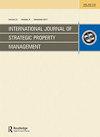基于地位-质量权衡理论和生态系统服务的地价城市生活质量评价
IF 2
4区 管理学
Q3 MANAGEMENT
International Journal of Strategic Property Management
Pub Date : 2023-05-19
DOI:10.3846/ijspm.2023.19124
引用次数: 1
摘要
城市生活质量(UQoL)是城市可持续发展的主要目标。它现在被广泛认为是一个多维的概念。住房和土地等与住宿有关的因素所提供的满足感,极大地促进了人们对生活质量的满意度。同时,UQoL也对城市的房价和地价有影响。我们的回顾显示,目前大多数关于这种相互关系的研究都局限于UQoL的几个维度及其对住房或土地价格的影响。本文将从状态-质量权衡理论和生态系统服务的角度出发,将土地价格作为UQoL指数计算的输入,填补这一空白。本文以越南河内市草家区为例,绘制了UQoL指数地图,并探讨了UQoL与地价的相互关系。在理想情况下,这种相互关系应该是正的(UQoL指数高/低-地价高/低)。然而,该研究还揭示了另外两种负面情景:“高UQoL指数-低地价”和“低UQoL指数-高地价”。这些负面的场景可以带来许多商业机会,因此对房地产市场的利益相关者来说是有趣的。本文章由计算机程序翻译,如有差异,请以英文原文为准。
URBAN QUALITY OF LIFE EVALUATION USING LAND PRICE WITH STATUS-QUALITY TRADE-OFF THEORY AND ECOSYSTEM SERVICES
Urban Quality of Life (UQoL) is the main objective of sustainable development in the urban context. It is now widely recognised as a multidimensional concept. The satisfaction provided by the elements related to accommodation, such as housing and land, greatly contributes to the satisfaction with quality of life. Meanwhile, the UQoL also contributes to housing and land prices in cities. Our review shows that most current studies on this interrelationship are limited to several dimensions of UQoL and their impact on housing or land prices. This article will fill the gap by using the land price as an input for calculating a UQoL index from the viewpoint of the Status-Quality Trade-Off theory and ecosystem services. A case study was conducted in Cau Giay District, Hanoi, Vietnam, to create a map of the UQoL index and investigate the interrelationship UQoL – land price. In an ideal condition, this interrelationship should be positive (high/low UQoL index – high/low land price). However, this research revealed two other negative scenarios: “high UQoL index – low land price”, and “low UQoL index – high land price”. These negative scenarios can bring many business opportunities and therefore be interesting for stakeholders in the real estate market.
求助全文
通过发布文献求助,成功后即可免费获取论文全文。
去求助
来源期刊
CiteScore
4.00
自引率
18.50%
发文量
23
审稿时长
15 weeks
期刊介绍:
International Journal of Strategic Property Management is a peer-reviewed, interdisciplinary journal which publishes original research papers. The journal provides a forum for discussion and debate relating to all areas of strategic property management. Topics include, but are not limited to, the following: asset management, facilities management, property policy, budgeting and financial controls, enhancing residential property value, marketing and leasing, risk management, real estate valuation and investment, innovations in residential management, housing finance, sustainability and housing development, applications, etc.

 求助内容:
求助内容: 应助结果提醒方式:
应助结果提醒方式:


